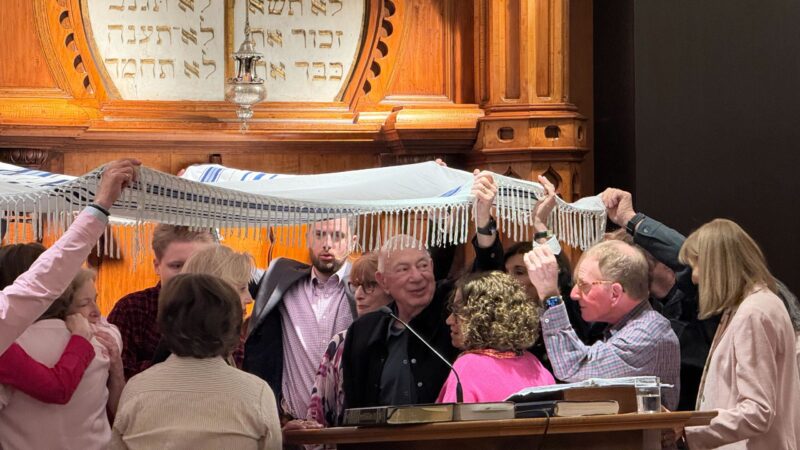Alabama man’s execution was botched, advocacy group alleges
MONTGOMERY, Ala. — Alabama corrections officials apparently botched an inmate’s execution last month, an anti-death penalty group alleges, citing the length of time that passed before the prisoner received the lethal injection and a private autopsy indicating his arm may have been cut to find a vein.
Joe Nathan James Jr. was put to death July 28 at an Alabama prison for the 1994 shooting death of his former girlfriend. The execution was carried out more than three hours after the U.S. Supreme Court denied a request for a stay.
“Subjecting a prisoner to three hours of pain and suffering is the definition of cruel and unusual punishment,” Maya Foa, director of Reprieve US Forensic Justice Initiative, a human rights group that opposes the death penalty, said in a statement. “States cannot continue to pretend that the abhorrent practice of lethal injection is in any way humane.”
The Alabama Department of Forensic Science declined a request to release the state’s autopsy of James, citing an ongoing review that happens after every execution. Officials have not responded to requests for comment on the private autopsy, which was first reported by The Atlantic.
At the time of the execution, Alabama Corrections Commissioner John Hamm told reporters that “nothing out of the ordinary” happened. Hamm said he wasn’t aware of the prisoner fighting or resisting officers. The state later acknowledged that the execution was delayed because of difficulties establishing an intravenous line, but did not specify how long it took.
Dr. Joel Zivot, a professor of anesthesiology at Emory University and an expert on lethal injection who witnessed the private autopsy, said it looked like there were numerous attempts to connect a line.
Zivot said he saw “multiple puncture sites on both arms” and two perpendicular incisions, each about 3 to 4 centimeters (1 to 1.5 inches) in length, in the middle of the arm, which he said indicated that officials had attempted to perform a “cutdown,” a procedure in which the skin is opened to allow a visual search for a vein. He said the cutdown is an old-style medical intervention rarely performed in modern medical settings, and that it would be painful without anesthesia. He also said he saw evidence of intramuscular injections not in the vicinity of a vein.
The Alabama Department of Corrections prison system issued a written statement in which it noted that “protocol states that if the veins are such that intravenous access cannot be provided, the team will perform a central line procedure,” which involves placing a catheter in a large vein. “Fortunately, this was not necessary and with adequate time, intravenous access was established,” the statement said.
Alabama does not allow witnesses from news outlets to watch the preparations for a lethal injection. They get their first glimpse of the execution chamber when an inmate is already strapped to the gurney with the IV line connected.
A reporter for The Associated Press who attended the execution observed that James did not respond when the warden asked if he had final words. His eyes remained closed except for briefly fluttering at one point early in the procedure.
Lawyers who spoke with James by telephone said they were disturbed by his reported lack of movements and raised questions about what happened before the lethal injection. Hamm said James was not sedated.
“That wasn’t the Joe that I knew. He always had something to say. He always wanted to be in control,” said James Ranson, the attorney who helped James file his appeal with the U.S. Supreme Court. “The fact that he did not give any sort of reaction … and that he didn’t open his eyes, tells me something was up,” Ranson said.
John Palombi, a federal defender who spoke with James twice on the day of his execution, said James, “was certainly alert” earlier in the day.
The Atlantic quoted a friend of James as saying that the inmate had planned to make a final statement.
Robert Dunham, executive director of the Death Penalty Information Center, a national nonprofit organization that analyzes issues concerning capital punishment, said the delay between the Supreme Court’s go-ahead and the execution, combined with the autopsy, points to a “botched execution, and it is among the worst botches in the modern history of the U.S. death penalty.”
“This execution is Exhibit A as to why execution secrecy laws are intolerable,” Dunham wrote in an email to the AP. “The public is entitled to know what went on here — and what goes on in all Alabama executions — from the instant the execution team begins the process of physically preparing the prisoner for the lethal injection until the moment the prisoner dies.”
Auburn fires coach Hugh Freeze following 12th loss in his last 15 SEC games
The 56-year-old Freeze failed to fix Auburn’s offensive issues in three years on the Plains, scoring 24 or fewer points in 17 of his 22 league games. He also ended up on the wrong end of too many close matchups, including twice this season thanks partly to questionable calls.
In a ‘disheartening’ era, the nation’s former top mining regulator speaks out
Joe Pizarchik, who led the federal Office of Surface Mining Reclamation and Enforcement from 2009 to 2017, says Alabama’s move in the wake of a fatal 2024 home explosion increases risks to residents living atop “gassy” coal mines.
‘It’s like feeling the arms of your creator just wrapped around you’: a visit to a special healing Shabbat
Members of Temple Emanu-El in Birmingham gathered recently for their traditional Friday Shabbat service. But this particular service was different, as could be seen by all the people dressed in their finest pink.
Space Command is coming to Huntsville. What might that mean for first-time homebuyers
While Huntsville has been a more affordable market than other growing cities, what’s it been like for those looking for their first home?
Colorado says relocation of Space Command to Alabama is ‘punishment’ for mail-in voting
The litigation announced by Colorado Attorney General Phil Weiser asks a federal judge to block the move as unconstitutional.
Breaking down Alabama’s CHOOSE Act
It’s been a year since Alabama legislators passed the CHOOSE Act allowing families to apply for state funds to use towards homeschool expenses and tuition for participating private schools. The Alabama Daily News’ education reporter Trisha Powell Crain has been diving into how the funds are being used. WBHM’s Andrew Gelderman sat down with her to talk about what we’re seeing so far.









